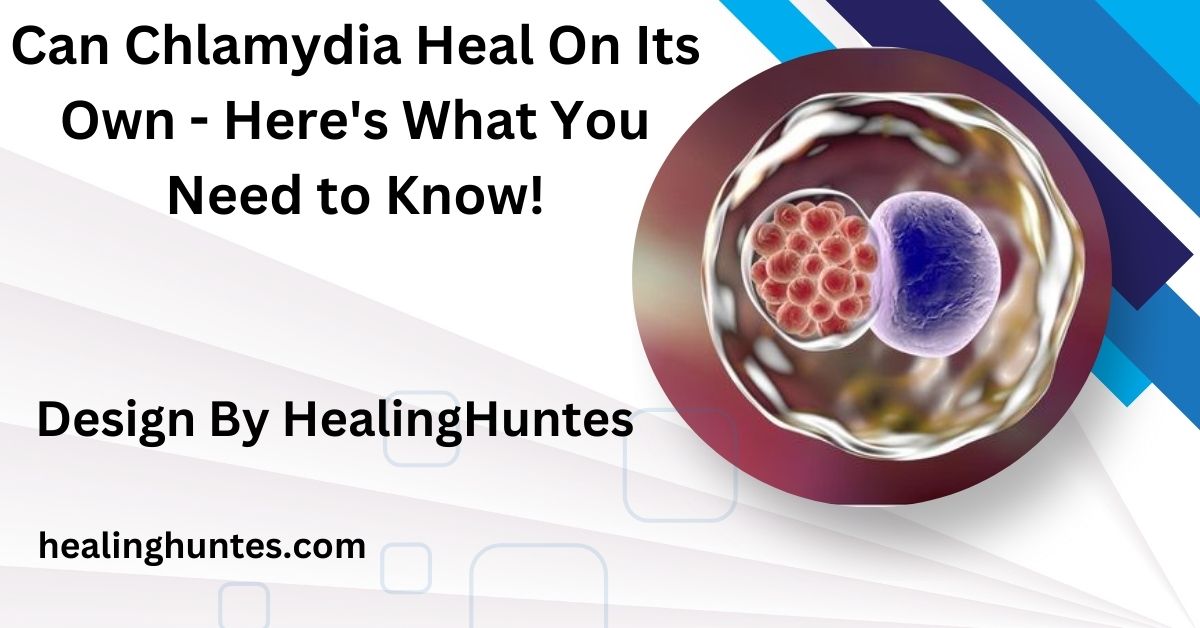Can Chlamydia Heal On Its Own – Here’s What You Need to Know!
Chlamydia cannot heal on its own and requires timely antibiotic treatment to prevent severe complications.
This article delves into whether chlamydia can heal on its own, the risks of leaving it untreated, and the importance of timely treatment.
Understanding Chlamydia:
Chlamydia is caused by the bacterium Chlamydia trachomatis and is typically transmitted through sexual contact. Many people with chlamydia experience no symptoms, making it challenging to detect without proper testing. However, the infection can silently progress, leading to serious health consequences.
Can Chlamydia Heal on Its Own:
Chlamydia does not heal on its own. Unlike some minor infections, it requires proper antibiotic treatment to eliminate the bacteria from the body. Ignoring the infection can allow it to persist and worsen, potentially causing long-term damage to reproductive health.
Risks of Untreated Chlamydia:
Untreated chlamydia can lead to severe complications such as infertility, chronic pelvic pain, and ectopic pregnancies in women. In men, it may cause epididymitis, leading to pain and fertility issues. Additionally, untreated infections increase the risk of transmitting other STIs, including HIV, and can lead to reactive arthritis, a painful joint condition.
Pelvic Inflammatory Disease: (PID)
Untreated chlamydia in women can spread to the upper reproductive tract, leading to PID. This serious condition may cause chronic pelvic pain, infertility, or life-threatening ectopic pregnancies. Early treatment is crucial to avoid such complications.
Epididymitis in Men:
In men, untreated chlamydia can cause epididymitis, an inflammation of the epididymis. Symptoms include pain, swelling, and fever, potentially leading to long-term fertility issues. Prompt diagnosis and treatment are vital to prevent severe outcomes.
Other Complications:
Untreated chlamydia heightens the risk of contracting or transmitting other STIs, such as HIV. It can also lead to reactive arthritis, a painful condition that affects joints, eyes, and the urinary tract, requiring specialized care.
Also Read: Can A Torn Achilles Tendon Heal On Its Own – Expert Insights!
Symptoms of Chlamydia:
While many people are asymptomatic, some common signs of chlamydia include:
- Painful urination or a burning sensation.
- Unusual discharge from the genitals.
- Lower abdominal pain or discomfort.
- Pain during sexual intercourse.
Recognizing these symptoms early is crucial for seeking timely treatment.
How Is Chlamydia Diagnosed:
Diagnosis involves simple tests such as urine samples or swabs taken from the affected area. These tests accurately detect the presence of Chlamydia trachomatis and help in prescribing appropriate treatment. Regular STI screenings are recommended, especially for sexually active individuals under 25 or those with multiple partners.
Treatment Options for Chlamydia:
Chlamydia is effectively treated with antibiotics like azithromycin or doxycycline. It’s crucial to complete the entire prescribed course to fully eliminate the infection. Follow-up testing is recommended 3-4 weeks post-treatment to confirm clearance. Treating sexual partners simultaneously helps prevent reinfection and further spread.
Antibiotics:
Chlamydia is treated effectively with antibiotics like azithromycin or doxycycline. It’s essential to complete the full medication course, even if symptoms subside. This ensures the infection is fully eradicated and prevents complications or reinfection.
Follow-Up Testing:
Follow-up testing is crucial to confirm that the infection has been cleared after treatment. Typically conducted 3-4 weeks later, it helps ensure successful recovery. This step is especially important to prevent unnoticed persistence or reinfection.
Also Read: How Long Does It Take For Jammed Fingers To Heal – From Pain to Recovery!
Preventing Chlamydia:
Using condoms consistently and correctly reduces the risk of chlamydia transmission significantly. Regular STI screenings are vital, especially for sexually active individuals with multiple partners. Open communication with partners about sexual health fosters responsibility and mutual prevention. Practicing abstinence or monogamy also minimizes risk.
Practice Safe Sex:
Consistently using condoms during sexual activity is one of the most effective ways to prevent chlamydia and other STIs. Proper use is crucial to ensure protection. Combining safe sex practices with regular education about risks enhances overall prevention.
Regular Screenings:
Routine STI screenings are essential for early detection, especially since chlamydia often presents no symptoms. Regular testing ensures timely treatment and prevents long-term health issues. This practice is particularly important for sexually active individuals with multiple partners.
Open Communication:
Having open and honest discussions about sexual health with partners builds trust and promotes shared responsibility for preventing STIs. Communication encourages safer practices and ensures informed decision-making in relationships.
FAQ’s
1. Can chlamydia go away without treatment?
No, chlamydia requires antibiotics for complete eradication. Without treatment, it can lead to serious health complications.
2. How long does it take to cure chlamydia?
With antibiotics, chlamydia typically clears within 7-14 days. Ensure you complete the entire prescribed course.
3. Can I get chlamydia again after treatment?
Yes, being treated does not prevent reinfection. Practice safe sex and ensure partners are also treated.
4. What happens if chlamydia is untreated for a long time?
Untreated chlamydia can cause infertility, chronic pain, and increase the risk of other STIs.
5. Is chlamydia contagious even without symptoms?
Yes, chlamydia can be transmitted even if no symptoms are present.
Conclusion
Chlamydia is a prevalent but serious STI that requires timely medical treatment, as it cannot heal on its own. Early detection and proper antibiotic therapy ensure complete recovery while preventing complications like infertility or pelvic inflammatory disease. Prioritizing regular STI screenings, practicing safe sex, and seeking prompt medical care are essential steps to protect your health and maintain a responsible approach to sexual well-being.
